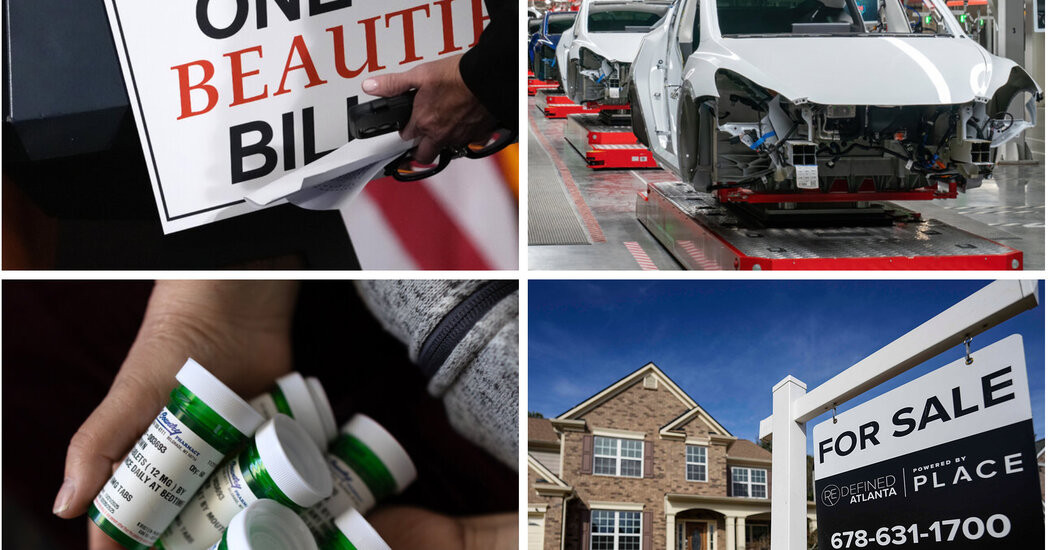

You asked. We answered.
In a recent newsletter, we asked readers for your questions about the economy. You wondered about tariffs, real estate, President Trump’s “big, beautiful bill” and more. Today, reporters at The Times answer.
I’ve read about how the bill could hurt the economy. But are there any parts of it that mainstream economists believe will help? I’m specifically curious about any new provisions, not extensions of expiring policies. — Kerry Bloomfield from Minneapolis
Ben Casselman, The Times’s chief economics correspondent, writes:
Yes, there are some parts of the bill that economists think would be good. Many endorse a provision that would let businesses deduct costs of building new factories, which could encourage new investment. Other provisions — such as imposing stricter work requirements for public benefits like Medicaid — win support from economists who lean conservative but aren’t outside the mainstream of the profession.
Still, as your question suggests, economists across the ideological spectrum say the overall bill would hurt, in part because of its cost. It would add trillions of dollars to the debt at a time when economists worry about the risks posed by the country’s record debt levels.
What, exactly, are the tax breaks I keep hearing about in the “big, beautiful bill” that will favor the most wealthy? — Molly from Illinois
Andrew Duehren, who covers taxes, writes:
There are a few. First of all, much of this tax bill is dedicated to extending tax cuts that Republicans first put in place in 2017. So without this bill, Americans who earn more than $626,000 would face a 39.6 percent tax rate instead of 37 percent. Another measure in the bill would extend a deduction for owners of many businesses. Americans making more than $1 million reap the lion’s share of this tax break. Then there is the estate tax, the levy collected on rich Americans’ assets when they die. Under the bill, the tax would kick in only for Americans worth more than $15 million. Without the bill, the level would drop to $7.14 million next year.



